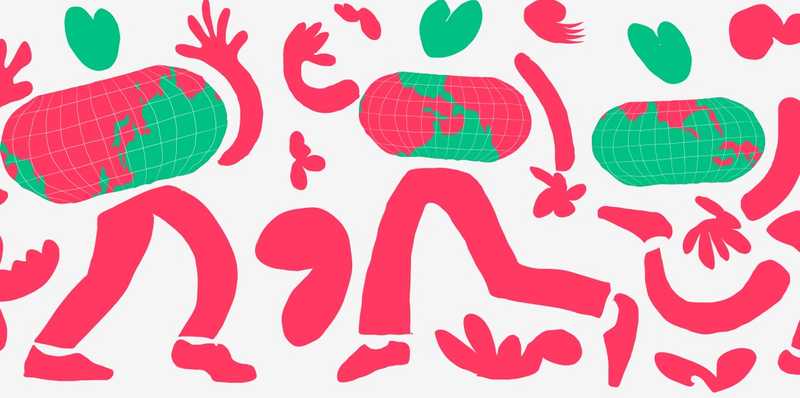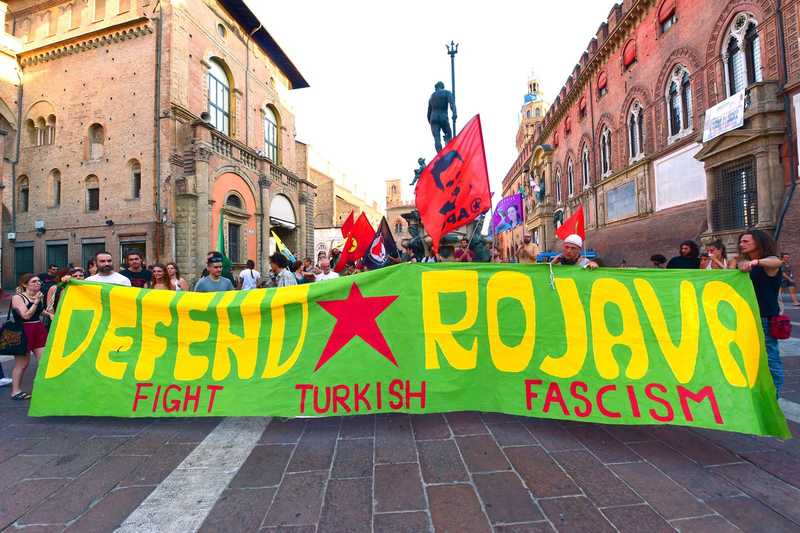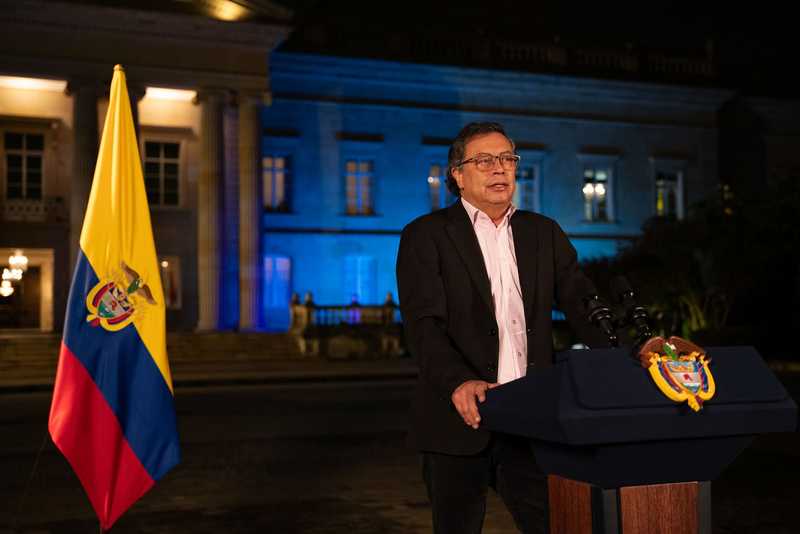
With only 6.2% of the world population fully vaccinated - and at the current rate, low-income countries waiting 57 years to be fully vaccinated - the Summit’s participants will seek to speed up the production, distribution, and delivery of Covid-19 vaccines to the world. Participants will consider concrete proposals to pool technology, invoke patent waivers and invest in rapid production.
Representatives from the governments of Argentina, Bolivia, Mexico, Cuba, Venezuela, the Indian state of Kerala and the Kenyan county of Kisumu will be joined by four vaccine manufacturers: Fiocruz, the Brazilian state manufacturer leading Brazil’s vaccination drive, Virchow Laboratories, an Indian manufacturer with a presence in over 100 countries and an annual turnover of $600 million, Biolyse, a Canadian firm seeking voluntary or compulsory licensing agreements and BioFarmaCuba, Cuba’s state manufacturer.
The Summit will also be attended by political leaders from around the world, including former leader of the UK Labour Party Jeremy Corbyn, former Greek Finance Minister Yanis Varoufakis and leader of the Colombian opposition Gustavo Petro, and representatives from healthcare unions from the US, Brazil and India.
The governments meeting at the Summit will discuss a number of proposals including:
- A platform for sharing ongoing progress with candidates, trial protocols and data — setting the stage for real transparency and allowing local vaccine manufacturers to produce the critical doses of Covid-19 vaccines.
- Sharing manufacturing capacity and investing in public industry, equipping factories to produce the vaccines required for domestic and Global South needs.
- Collective disobedience through national legislation to override intellectual property protections collectively, introducing a credible threat to the monopoly pharmaceutical model currently at play.
Bolivian foreign minister Rogelio Mayta Mayta argues that “these proposals can begin to shift the entire logic of the global health system — from nationalism to internationalism, from charity to solidarity, and from competition to cooperation. The Summit is a first step on this journey of transformation.”
The Summit will also hear trenchant criticism of the G7 and its failure to take on the Big Pharma monopoly rules that are preventing global mass vaccination. The G7 has pledged to donate fewer than 1 billion doses of Covid-19 vaccine - less than 10% of global need. At the opening plenary, Jeremy Corbyn is expected to say, "Charity is not enough. The cheaper, faster, and fairer way to vaccinate the world is to waive the vaccines patents, share the technology and enable governments everywhere to manufacture them to provide for their citizens."
Yanis Varoufakis is expected to use the Summit to highlight how rich countries' central banks have printed over $9 trillion dollars, much of which has just propped up “the wealth of billionaires”, while they have failed to fund global vaccinations, which the IMF has estimated would cost $50 billion, while Public Citizen research puts the figure at just $23 billion. Varoufakis is expected to claim that “these economies could finance the ending of the pandemic without even breaking a sweat.”
This G7 failure amid such readiness to prop up the asset values of the super rich shows that “the end of this pandemic is now being artificially delayed,” according to Summit coordinator and Progressive International cabinet member Varsha Gandikota-Nellutla. It is “not only stingy, it is also stupid”, charges Mayta. The delays to vaccinate the world harms the global economy, he will argue, but “may also prove suicidal: the longer the virus travels, the more often it mutates, and the more viciously it may boomerang back to the rich countries that are already rolling out vaccination programs.”
Expected participant contributions
Argentina, represented at the Summit by Health Minister Carla Vizzotti, has significant manufacturing capacity with 190 private manufacturing facilities and 40 public manufacturing sites. Vizzotti is expected to say that her country stands ready to put its manufacturing to use in the production of further vaccines for the Latin American region after its successful production of both the Oxford AstraZeneca and Sputnik vaccines. Vizzotti is expected to say, "We know that our country, our region has the capacity to increase necessary production, to reduce the gaps in access to vaccines and other necessary supplies."
Mexico, represented at the Summit by Hugo López-Gatell Ramírez, Deputy Secretary of Prevention and Health Promotion, has domestic manufacturing capacity and is already producing the Sputnik vaccine. Domestically produced ventilators have been donated to countries in the region in need, such as Haiti and Paraguay. Mexico has its own vaccine candidate, Patria, which it expects to be ready by the end of 2021.
Bolivia, represented at the Summit by Foreign Minister Rogelio Mayta Mayta, is looking to stimulate “collective disobedience” to the Big Pharma monopoly model that has left only 4.7% of the Andean country’s population fully vaccinated. Mayta will look to expand upon the deal he reached with Canadian manufacturer Biolyse to purchase fifteen million doses at $3-4 dollar per dose, enough to vaccinate the entire adult population of Bolivia. Biolyse can only legally produce the vaccines if the Canadian government grants them a compulsory license. Canadian prime minister Justin Trudeau’s refusal to grant the license will be denounced at the Summit by Canadian opposition MP Niki Ashton who is expected to say, “Canada must support countries like Bolivia and others seeking to manufacture vaccines in Canada. But Trudeau's government has refused to grant the compulsory license that would enable Biolyse to produce the vaccines. This is unacceptable. Shameful on Canada’s part.”
Cuba, represented at the Summit by Dr. Regla Angulo Pardo, Vice Minister of Public Health, will use the Summit to seek partners it can supply with its domestically developed vaccines at “solidarity prices” and publicise the impact US sanctions is having on its ability to produce vaccines and support other countries in ending the pandemic, as well as Cuba’s health internationalism.
Venezuela, represented at the Summit by Foreign Minister Jorge Arreaza, is set to propose the countries present design a plan for local production of vaccine generics, share information about domestic health production capacities and supply routes to ensure there are no shortages of vital equipment like ventilators and sharing technology between countries, such as that for test and trace.
Arreaza will also use the Summit to alert the world about the impact of US sanctions in locking Venezuela out of Covax. Ahead of the Summit, Arreaza said, “The news that Venezuela's last four payments to COVAX have been blocked — thus preventing the Venezuelan people from accessing the vaccine distribution mechanism — confirms once again the criminal nature of the unilateral, illegal, and coercive measures that the United States has imposed on Venezuela. Obstructing a people's access to vaccines during the pandemic is a crime against humanity and the free peoples of the world must unite and design mechanisms to avoid this medical apartheid, where a few have access to vaccines and others are excluded.”
Shut out from the Covax system, Arreaza is set to announce at the Summit that Venezuela will produce two of Cuba’s domestically developed vaccines.
Anyang’ Nyong’o, governor of Kisumu county in Kenya, where healthcare is devolved to the county level, will seek partners to set up joint scientific partnerships of the domestic production of vaccines and medical equipment. Speaking ahead of the Summit, Nyong’o said, "It is imperative that Africa develops her domestic knowledge and technology capacity to manufacture vaccines and ARVs. This essentially means focusing on genetic engineering and biotechnology as areas of knowledge production and research so far not paid much attention in African universities and research institutions."
The Indian state of Kerala, which has received widespread praise for its handling of the pandemic, will be represented at the Summit by Chief Minister Pinarayi Vijayan and K.K.Shailaja, Member of Kerala Legislative Assembly and former Health Minister. Vijayan is expected to tell the Summit that Kerala’s public manufacturing capacity stands ready to produce vaccines if it receives the necessary transfers of technology.
The Summit will also receive presentations from the South African team that presented the motion to waive intellectual property restrictions on Covid-19 vaccines as the WTO, including Xolelwa Mlumbi-Peter, Permanent Representative to the WTO, and Mustaqeem de Gama, Counsellor to the Mission.
As part of the discussion on collective disobedience, Giorgio Jackson, a Chilean congressman, will tell the Summit how he drafted a blanket intellectual property waiver law in the Chilean Congress and saw it passed by deputies 127-0 only to be blocked by President Pinera.
Summit coordinator and Progressive International cabinet member Varsha Gandikota-Nellutla said:
“We have the capacity to end this pandemic, producing and distributing Covid-19 vaccines for all. And yet the end is nowhere in sight. A nexus of Big Pharma and Global North governments is standing in the way.
“As long as the virus spreads, it can mutate and move. Ending the pandemic is not a question of charity. It is a question of survival. The longer we wait, the more we are at risk: billions of lives, North and South, vaccinated and unvaccinated.
“The end of this pandemic is now being artificially delayed. In this moment, every laboratory, every factory, every scientist, and every healthcare worker must be empowered to produce and deliver more vaccines for everyone, everywhere.
“That is why we are convening ministers, parliamentarians, government officials, healthcare workers and vaccine manufacturers in an emergency Summit for Vaccine Internationalism — with the Global South leading the way.
“Our goal is simple: to end the pandemic as quickly as possible by securing Covid-19 vaccines for all.”
In a joint statement ahead of the Summit, Rogelio Mayta, Foreign Minister of Bolivia, K. K. Shailaja, Member of Kerala Legislative Assembly, India and Anyang' Nyong'o, Governor, Kenya, said:
“We have the power to end this pandemic. We have the technology, materials, and productive capacity to vaccinate the world against Covid-19 this year. We can save millions of lives, protect billions of livelihoods, and reclaim trillions of dollars worth of economic activity along the way.”
Former Leader of the UK Labour Party, Jeremy Corbyn MP, is expected to tell the Summit:
“Events like today are so important. The global elite will not fix this problem for us. We cannot wait for good sense to prevail in the boardrooms and government offices of the most powerful. We have to provide solutions ourselves.
“That’s why I am so inspired to be with you today: to see governments from the Global South come together to find collective solutions to end the pandemic.
Socialists and progressives in the UK stand with you. We salute your efforts and pledge to grow solidarity across borders, put pressure on our government to change course and challenge a rigged trade system that routinely prevents vital medicines getting to those who need them most.”
Commenting on the potential of the Summit to create a new international health order, David Adler, the Progressive International’s general coordinator, said:
“We are witnessing the first steps in the creation of a new international health order based in solidarity, not charity.
“The Progressive International exists to unite, mobilise and organise progressive forces - and that is exactly what we are doing with this Summit. We are using our convening capacity to create a platform for collective action that can turn the dial towards justice.”




